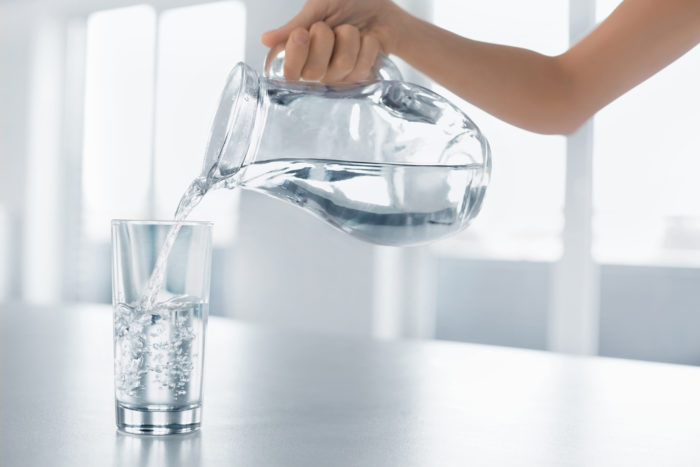Contents:
- Medical Video: 10 signs your body is begging for water | Signs and symptoms of Dehydration
- Does drinking water relieve stress?
- The effects of lack of drinking and stress spin like a cycle
- Tips for maintaining body fluids when stress strikes
Medical Video: 10 signs your body is begging for water | Signs and symptoms of Dehydration
Stress can be interpreted as a condition in which the body and brain experience pressure as a response to the threat at hand. This makes the body react in such a way that you are able to deal with the pressure. The reaction is, for example, the heart beats fast, sweats easily, or you have a hard time thinking. Well, one way to help the body get rid of stress is to drink enough water.
Does drinking water relieve stress?
The human body is mostly composed by water. About 60 percent of the composition of the human body is water. Well, it turns out the brain has a composition of water that is higher than the body as a whole, the number is around 73 percent. That is why when body fluids are reduced, brain function will experience interference to think clearly so that it interferes with the stress management process.
You certainly can conclude, drinking water can help meet fluid needs in the brain. If the fluid in the brain is sufficient, you are also more able to relieve stress.
The effects of lack of drinking and stress spin like a cycle
Both stress conditions that cause dehydration or dehydration that trigger stress, both of them spin continuously like a vicious circle.
The appearance of stress begins with the reaction of the adrenal gland above the kidney organ. The gland produces a stress hormone, cortisol. Basically it is normal, because these hormones make a person more alert to stress.
However, you will feel signs such as an increase in heart rate and breathing that become heavier or fully tired. Both of these processes will unwittingly increase the volume of water coming out of the body.
The high hormone cortisol also means there are other hormonal disorders such as aldosterone. These hormones play a role in regulating electrolyte levels. When aldosterone levels decrease, the body loses the ability to maintain electrolyte balance and eventually the body becomes dehydrated.
While dehydration will cause severe signs of stress. This is because when the body is dehydrated, the circulation process will also be hampered. As a result oxygen is carried to the brain and other body parts become less. That's why it's a nuisance mood mild and concentration difficulties can occur since the body has mild dehydration.
Both, both dehydrated and stressed, have the same symptoms such as increased heart rate, weakness, headaches, and nausea. At the same time dehydration causes the brain and body to not work optimally to relieve stress. Prolonged stress is also closely related to less water consumption patterns (so rarely drink) to adrenal fatigue and depression.
Tips for maintaining body fluids when stress strikes
To break the vicious cycle between lack of drinking and stress, the key is not to drink less. To eliminate stress and prevent shortages of fluids, follow these tips.
- Know when the body starts to lack water. Drink water immediately when thirsty and the color of urine becomes darker with a more pungent odor.
- Drink enough. The need for someone's drinking water is around 2-4 liters per day. Increase consumption of drinking water if you are physically active, are in a hot or dry environment, and sweat a lot.
- Always provide drinking water. Bring the drinking bottle everywhere in the bag. Also provide drinking water at the work desk or in the bedroom.
- Choose a good water source. Mineral water can help maintain body fluids far more effectively than sugary drinks, soda, or coffee.














